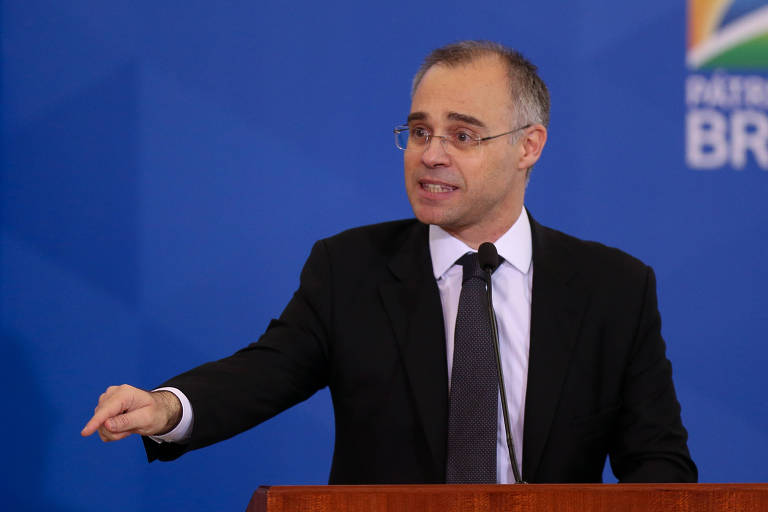The Brazilian minister of justice is watching you, antifa sympathyzer. Policemen and intellectuals who do not think the correct ideas, watch out: the minister André Mendonça knows who you are, where you live and what you are doing in the corners of the quarantine.
A former Lula's enthusiast, Mendonça now pays tribute to his current boss. When asked by Bolsonaro, he even gives prayer at a state ceremony. He perverted the role of the attorney general, his former office, and now that of minister of justice by taking on the role of sentinel of the president. He has long called for action against personal attacks on Bolsonaro.
Last week, it was discovered that an organ of the Brazilian Intelligence System (Sisbin) under its authority secretly monitors policemen and intellectuals. Not on suspicion of illicit activity (which would justify police investigation), but on suspicion of thought (the though with the "anti-fascist" stamp).
Authoritarian regimes adopt an arsenal of tools against enemies: alongside summary execution, disappearance, torture and public stigmatization, the thought police is their most insidious way of nullifying opponents.
Tought police, "one of the most important institutions in the modern world" (Tucci Carneiro), aims to domesticate and repress heterogeneity. It operates by the technique of presumed suspicion and preventive repression. Its purpose is to generate fear, self-control and self-censorship. It is expected that those persons who are already recorded in Mendonça's files will voluntarily stop bothering, because at any moment a dossier may come up.
The fact does not only cause political tension, which is resolved by conversation and handshake. It asks for public clarification and possible legal sanction for the illegal acts. The minister seems to commit at least four:
1) responsibility crime ("patently violating any individual right or guarantee" - art. 7, IX, Impeachment Law);
2) abuse of authority crime ("to carry out administrative prosecution without justified reason or against those who are known to be innocent", art. 30, Abuse of Authority Law);
3) administrative impropriety ("performing an act which aims at an end that is prohibited by law" and violating public administration principles, such as transparency and impersonality - art. 11, I, Administrative Impropriety Law);
4) violation of the right to information ("improperly using information that is in your custody" and "imposing confidentiality on information to obtain personal or third party benefit, or for the purpose of concealing an illegal act", art. 32, II and V, Access to Information Law).
The same minister who defends the right to carry out, in the midst of a pandemic, acts to close democratic institutions and to celebrate the AI-5; the same minister who justifies the presence of the president himself in the acts, as if everything fits in an indistinct box of freedom of expression, monitors people who profess ideas against fascism.
Those who express sympathy for the "antifa" symbol do not have a homogeneous identity, do not integrate an organized movement, do not practice any predefined booklet of protest. "Antifa" is just a binding label for a plurality of people who share a particular concern. In present Brazil, the concern with Bolsonaro.
The label's historical origin dates back to the 1920s in Italy. Throughout the 20th century, it had multiple configurations around the world. Mussolini called antifas "degenerates". Trump calls antifa terrorists and criminals. Bolsonaro follows Trump.
What exact antifascist idea annoys Mendonça? The claim for respect toward minorities? Or the one that asks for the right to exist in equal freedom? Does Mendonça worry that antifascists and anti-racists get closer? That their bodies occupy the streets? That they scream?
Postwar constitutionalism committed itself to anti-fascist immunization and devised an institutional vaccine against radical political evil. Bolsonaro, we know, invests in chloroquine, not in the 1988 Constitution. He is dedicated to spreading the virus that sweeps democracies. Mendonça is his dispatcher.
The anti-antifa vocation kills freedom. After all, "a minus times a minus equal to a plus".
